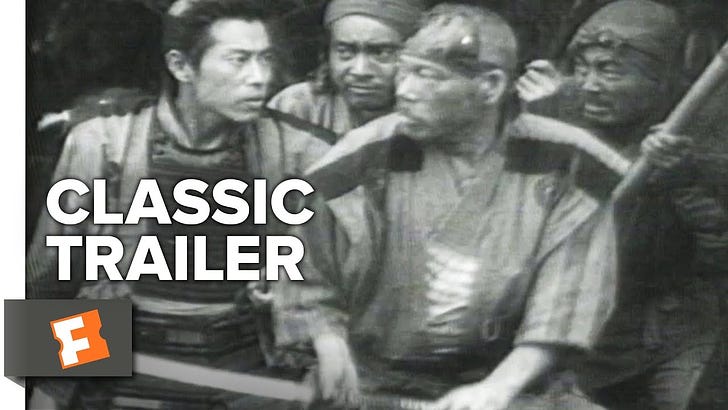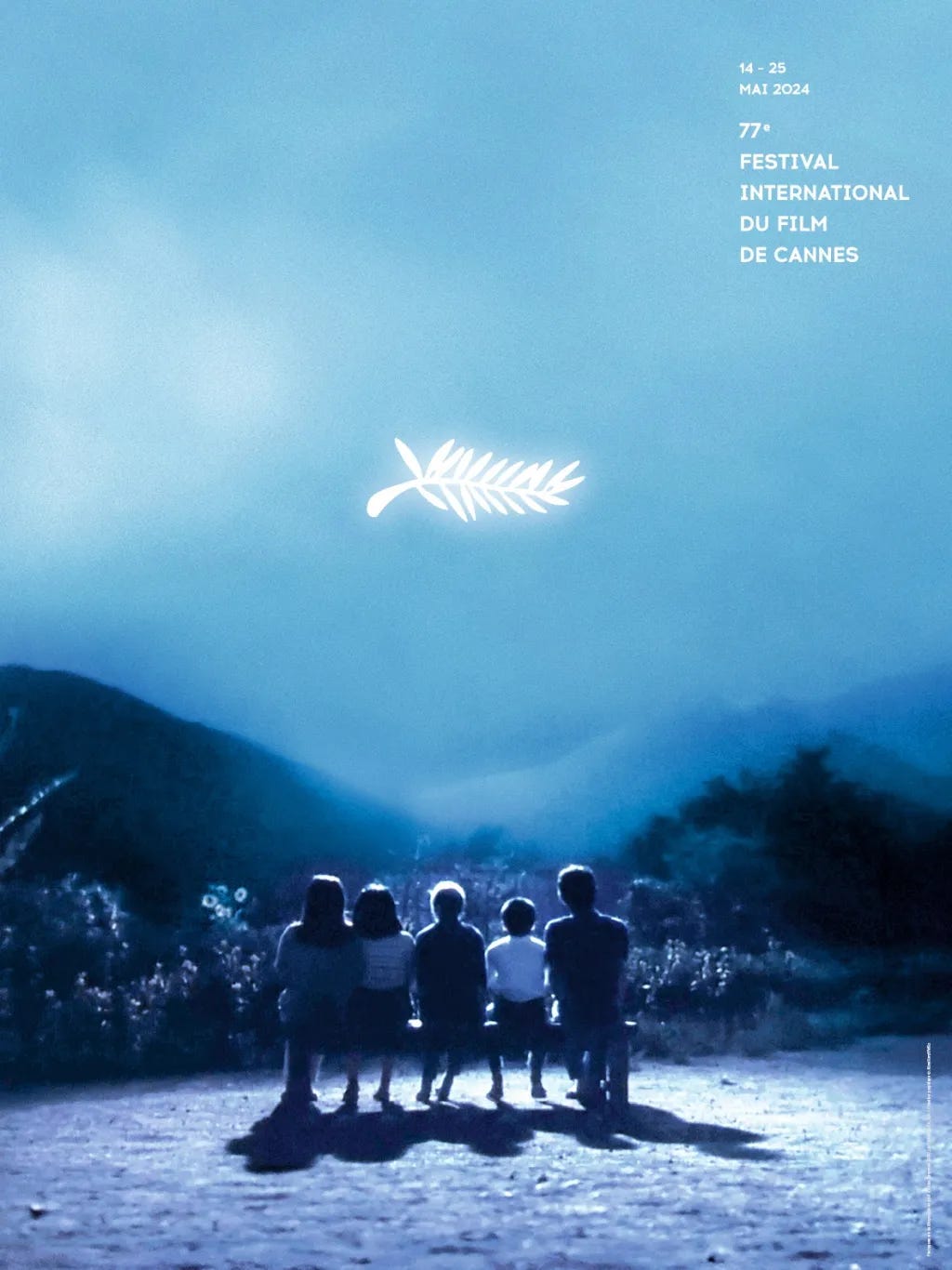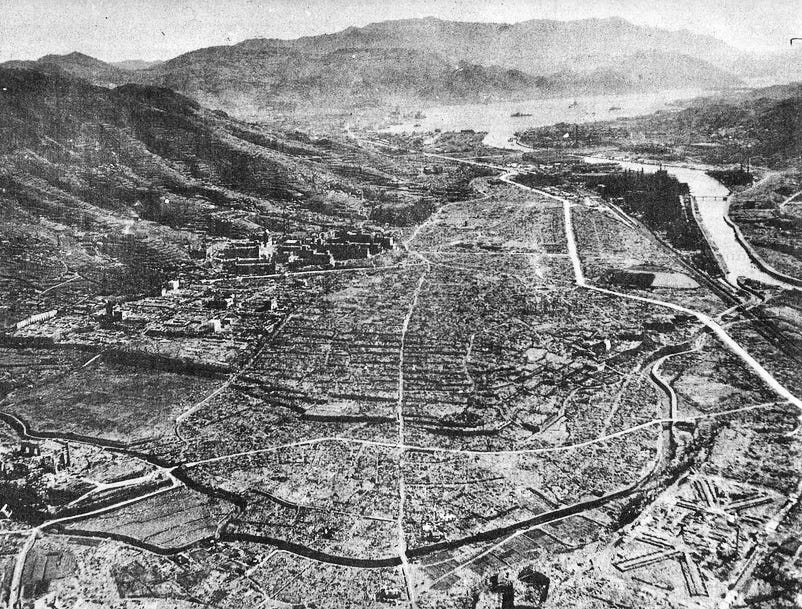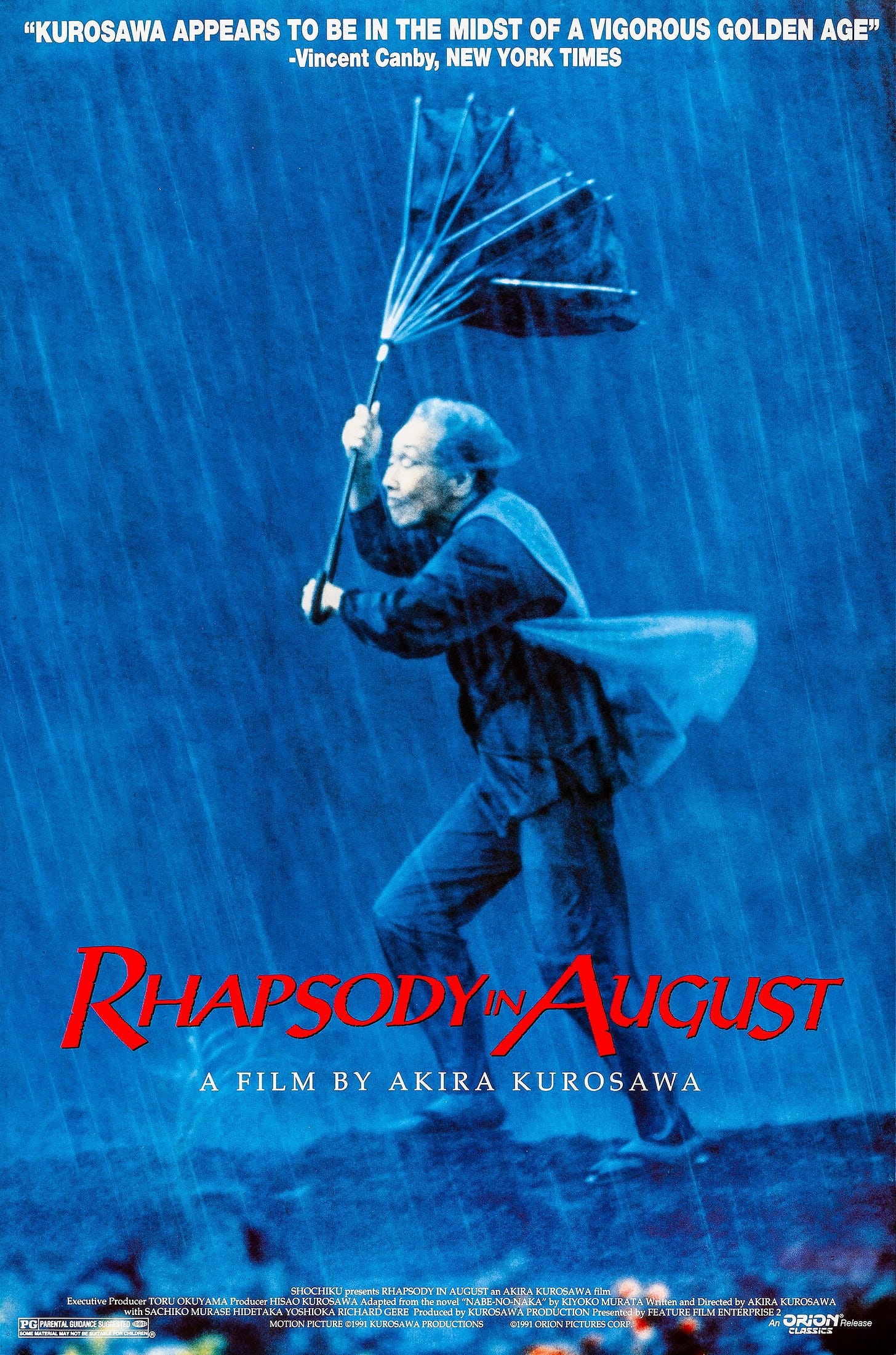Before 'Shogun' There Was...Kurosawa
He is still the master of the genre (ad much else), plus news about his "appearance" at Cannes this year and excerpt from an amazing interview with Gabriel Garcia Marquez
Greg Mitchell is the author of more than a dozen books (see link) and now writer/director of three award-winning films aired via PBS, including “Atomic Cover-up” and “Memorial Day Massacre” which are still up at PBS.org. Before all that, he was a longtime editor of the legendary Crawdaddy. You can still subscribe to this newsletter for free.
Yes, I’m a fan of the new “Shogun” (four eps to go), though skipped the original series. If you are enraptured, let me point you to the films of the GOAT, Akira Kurosawa, who I had the honor, rare for an American, of interviewing back in 1982. Photo above finds him on the set of “Seven Samurai,” released 70 years ago this weekend. The original 1954 trailer:
The leading figure in the new “Shogun” (beyond or equal to Blackthorne and Mariko) is the leader they serve, here named Tanagawa. Under his real name, Tokugawa, he proves by the end to be a key character in Kurosawa’s epic “Kagemusha.”
Not to be ignored, of course, is his masterwork, “Ran,” which yields nothing to “Shogun” in production values and spectacle—all without CGI.
I could go on: “Yojimbo,” “Throne of Blood,” “Sanjuro.” Suggestion: Take a deep dive.
Was surprised to see that the annual, widely-distributed official poster for this year’s Cannes Film Festival, unveiled this week, features an image from my hero Akira Kurosawa’s penultimate movie, “Rhapsody in August.” From 1991, it’s not one of his best known creations, so let me explain. That peaceful, lovely view (above) of a family gazing into a deep, tree-covered valley? That’s the Urakami Valley, over which Oppenheimer’s second “deadly toy” exploded, somewhat off-target, dooming at least 90,000 (almost all of them civilians) to death.
Explaining the poster, the festival said today that Kurosawa’s work “reminds us of the importance of coming together, and seeking harmony in all things.”
A view of the same valley, after the bomb, from my film “Atomic Cover-up.”
The Kurosawa film, in fact, focuses on an elderly woman who has never been able to forget what she witnessed on August 9, 1945, and its aftermath (among other things, she lost her husband to the bomb). She looks after four grandchildren who visit her one summer decades later, and then a distant nephew played by Richard Gere arrives from Hawaii. From one summary:
While in Nagasaki the children visit the spot where their grandfather was killed in 1945 and become aware, at a personal level, of some of the emotional consequences of the atomic bombing for the first time in their lives. They slowly come to have more respect for their grandmother and also grow to question the morality of the United States for deciding to use atomic weapons against Japan.
The Gere character, Clark, meanwhile, “is much moved by the events he sees in the Nagasaki community at the time of the memorial events surrounding the deaths which are annually remembered following the bombing of Nagasaki. Especially significant to Clark is the viewing of a Buddhist ceremony where the local community of Nagasaki meets to remember those who had died when the bomb was dropped.”
And finally:
When a storm is brewing, her mental health seems to confuse the storm for an air raid warning of another atomic bomb attack and she seeks to protect her visiting grandchildren by employing folk remedies, which confuse her children and especially her grandchildren. As the storm later intensifies again, Kane becomes more disoriented and mistakenly confuses the storm for the atmospheric disturbance caused by the bombing of Nagasaki which she witnessed visually from a safe distance when her husband was killed many years ago. In her disoriented state, Kane decides that she must save her husband, still alive in her memory, from the impending atomic blast. With all her remaining strength, she takes her small umbrella to battle the storm on foot on the way to warn her husband in Nagasaki of the mortal threat still fresh in her mind of the atomic blast which she cannot forget.
Here from the film one of Kurosawa’s greatest images:
At the time the film was released, Kurosawa sat down with one of my favorite novelists, Gabriel Garcia Marquez. You can read a lengthy excerpt here but one exchange:
Kurosawa: The people who survived Nagasaki don't want to remember their experience because the majority of them, in order to survive, had to abandon their parents, their children, their brothers and sisters. They still can't stop feeling guilty. Afterwards, the U.S. forces that occupied the country for six years influenced by various means the acceleration of forgetfulness, and the Japanese government collaborated with them. I would even be willing to understand all this as part of the inevitable tragedy generated by war. But I think that, at the very least, the country that dropped the bomb should apologize to the Japanese people. Until that happens this drama will not be over.
Marquez: That far? Couldn't the misfortune be compensated for by a long era of happiness?
Kurosawa: The atomic bomb constituted the starting point of the Cold War and of the arms race, and it marked the beginning of the process of creation and utilization of nuclear energy. Happiness will never be possible given such origins….I was a young journalist when the bomb was dropped, and I wanted to write articles about what had happened, but it was absolutely forbidden until the end of the occupation. Now, to make this film, I began to research and study the subject and I know much more than I did then. But if I had expressed my thoughts directly in the film, it could not have been shown in today's Japan, or anywhere else.









« Like » is so far below the appreciation I feel for this article, it’s laughable.
What a critical piece of writing, stretching down multiple roads, not the least of which is the impact of great art - in acting, writing, visual artistry.
It should be a launch point for classes in filmography. Among other subjects, including humanity and ethics (if there is such a thing in wartime).
Very powerful.Thanks for sharing this important story.